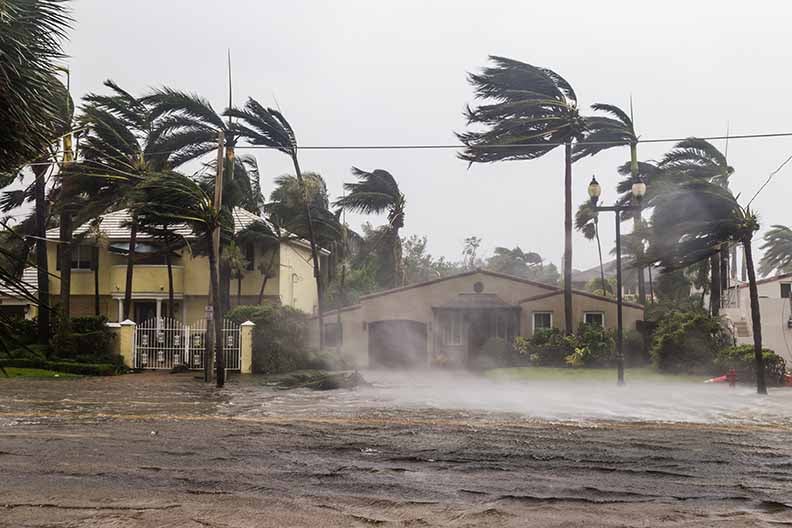 Here comes yet another Hurricane Season.
Here comes yet another Hurricane Season.
On August 5th, the Department of Atmospheric Sciences at Colorado State University increased its forecast for the 2020 Atlantic hurricane season to “extremely active.” According to their report, they predict “an above-normal probability for major hurricanes making landfall along the continental United States coastline.” Unfortunately, it only takes one storm to cause physical substantial and financial damage.
Planning and preparing your investment property is the best way to minimize damage in the event you or your property have contact with a hurricane this year:
What To Do Before a Storm is Approaching
Have a plan of what you will do in the event of a major hurricane. Here are some pertinent questions to ask yourself and have answered in preparation for the hurricane season.
- Will you evacuate, and if so, what is your plan?
- How will your tenants contact you? How will you reach them?
- Who will prepare your properties in the event of a storm?
- Who will secure them after the storm, and do you have tarps in case of roof damage?
- How will you cover a windstorm deductible expense?
- Does your generator work? Do you have any tarps?
- Do you have a three-day supply of food, water, toiletries, batteries, gasoline & cash?
- Are there overgrown trees on your property, or your neighbor’s that need to be trimmed or removed?
When a Storm is Approaching
If you find yourself in the path of a storm, take extra precautionary measures to keep yourself safe and protect your investment properties. Cover all openings to the building, including windows, doors, etc…, but leave yourself a way out, of course! Inspect the property for any loose items and secure them before the storm’s arrival. Give a final check to your three-day supplies and restock as needed. Secure valuable papers and documents that would otherwise be difficult to replace.
After the Storm Has Passed
When it is safe to do so, survey your properties for damage. Make sure vacant locations are secure! Make temporary repairs to minimize further damage, such as a tarp on the roof or covering a broken window. Take pictures of all damage and keep receipts to provide to your insurance company. Call your insurance agent to file any claims. In the event of a widespread catastrophe, many insurance companies set up service centers to process claims.
Be sure to bind your coverage sooner rather than later. Different insurance companies have a variety of binding restrictions. If you wait too long and your investment property is already in the path of a storm, there is a good chance you won’t be able to bind coverage in time. If you are looking for coverage options for your real estate investments, now is the time to act.
Unitas Financial Services can help Multi-Unit Real Estate Investors and Property Managers streamline the process of getting and keeping coverage in place for multiple locations.
Read our article on Protecting Homes Under Renovation and Vacant Dwellings



